Hurtling at well north of 200km/h before the Dubai Autodrome’s high
speed straight crests and dips into a steep gradient is a pulse-raising thrill,
only heightened by that morning’s earlier light drizzle. With curt downshifts
executed via steering-mounted paddle-shifters, the Renault Megan RS’
fade-resistant brakes, however, provide reassurance in direct proportion to
speed shed, as the run-off and curved embankment grow swiftly nearer.
اضافة اعلان
Crisply entering the tight but fast 180-degree
corner at the base of the descent, the Mégane RS carries its 1,430kg weight and
speed — now hovering at highway speeds — with confidence and control. With an
impression of the onset of a lurid tail slide, the RS’ new four-wheel-steering
instead provides greater stability and agility as it heroically clings through
the demanding, dipped and carousel-like corner.
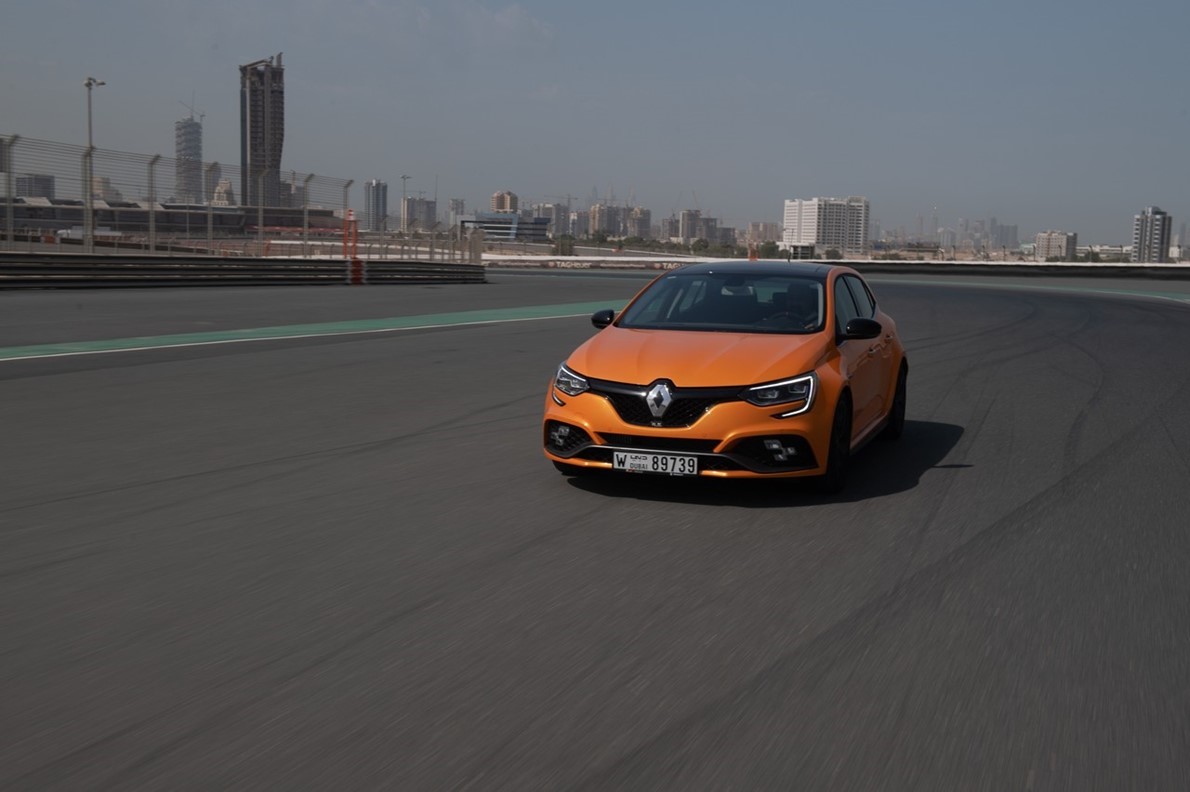
The “garden variety” version of the Nürburgring
Nordschleife front-wheel-drive record-setting Renault Mégane RS Trophy, the
regular road-going RS hot hatch is meanwhile not just quicker and more nimble
than its predecessor, but also more practical and spacious, with a five-door
body rather than three. An accessible daily performance hatch developed by the
French manufacturer’s RenaultSport division, the current Mégane RS is the most
efficient and advanced yet, but might be the last.
The Renault Megan RS is possibly the final authentic
petrol-powered Mégane hot hatch if the model line is reinvented as a radically
different high-riding EV crossover for next generation. The current RS is
conversely more practical and mature, but no less sporty than its predecessor.
An evolutionary design with a more upright roof and improved headroom, the
current Mégane RS features a more urgent demeanor with wide rear haunches and
near full width rear lights.
With a more grounded stance, prominent side sill,
and functional side vents that improve heat dissipation and airflow, the
current Mégane RS’ bigger rear air diffuser generates more downforce. Behind
its more prominent emblem, moodier headlights, F1-style front blade and bigger
intakes, the RS is driven by a smaller, more powerful, turbocharged 1.8-liter
engine shared with Renault’s recently resurrected Alpine A110 sports car, in
lieu of its predecessor’s 2-liter.
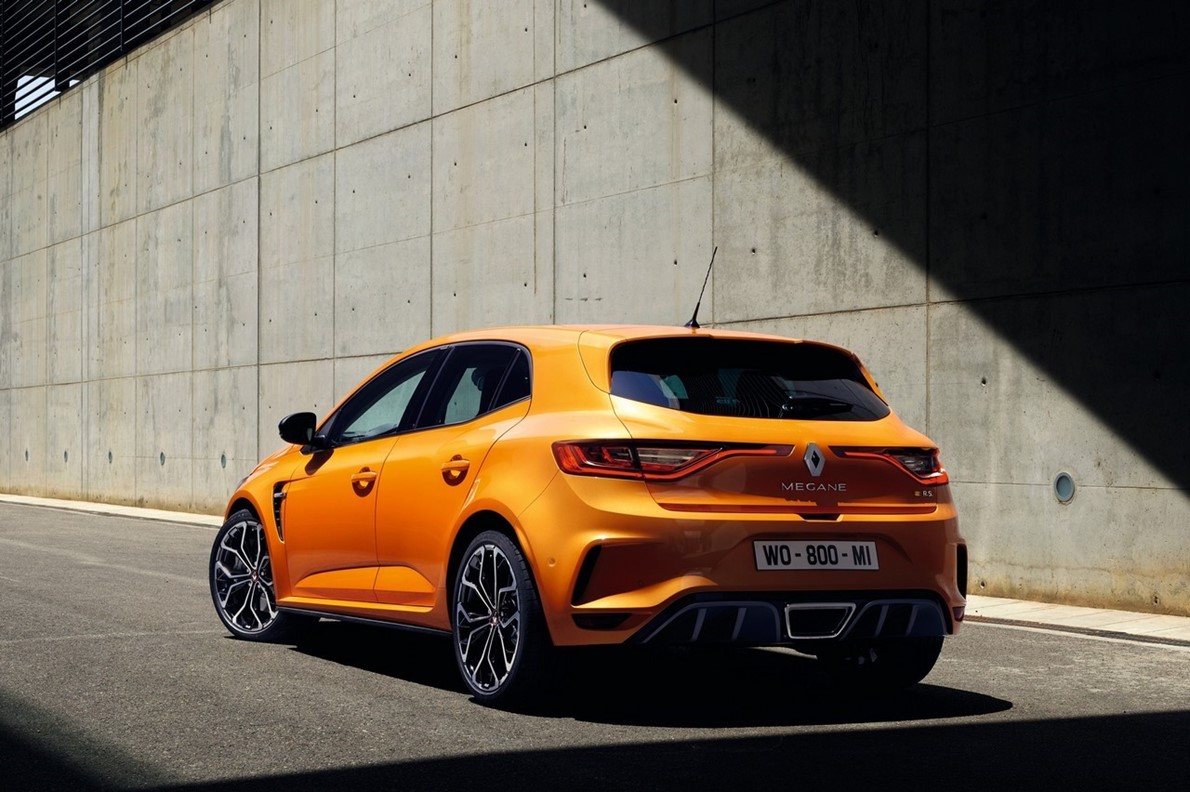
Producing 280HP at a higher revving 6,000rpm and
390Nm at a broader, more easily accessible 2,400–4,800rpm, compared to its
predecessor, the Mégane RS is flexible and decisively confident when
accelerating in gear, throughout an abundant mid-range band. Sprinting from
zero to 100km/h in 5.8-seconds and returning 7 liters/100km fuel consumption
when equipped with the responsive standard Middle Eastern specification
six-speed automated dual-clutch gearbox, the current Mégane RS is both quicker
and more efficient.
Responsively assertive from standstill with its
quick spooling turbo, the Mégane RS launches tidily and almost completely
eliminates the tugging torque steer usually associated with powerful
front-drive cars. This quality can be attributed to its modified MacPherson
strut front suspension and its independent steering axis pivot. Accumulating
power with eager urgency and a snarl from its central exhaust port, the
muscular and aerodynamically slippery RS confidently accelerates to high
speeds, and can achieve 250km/h.
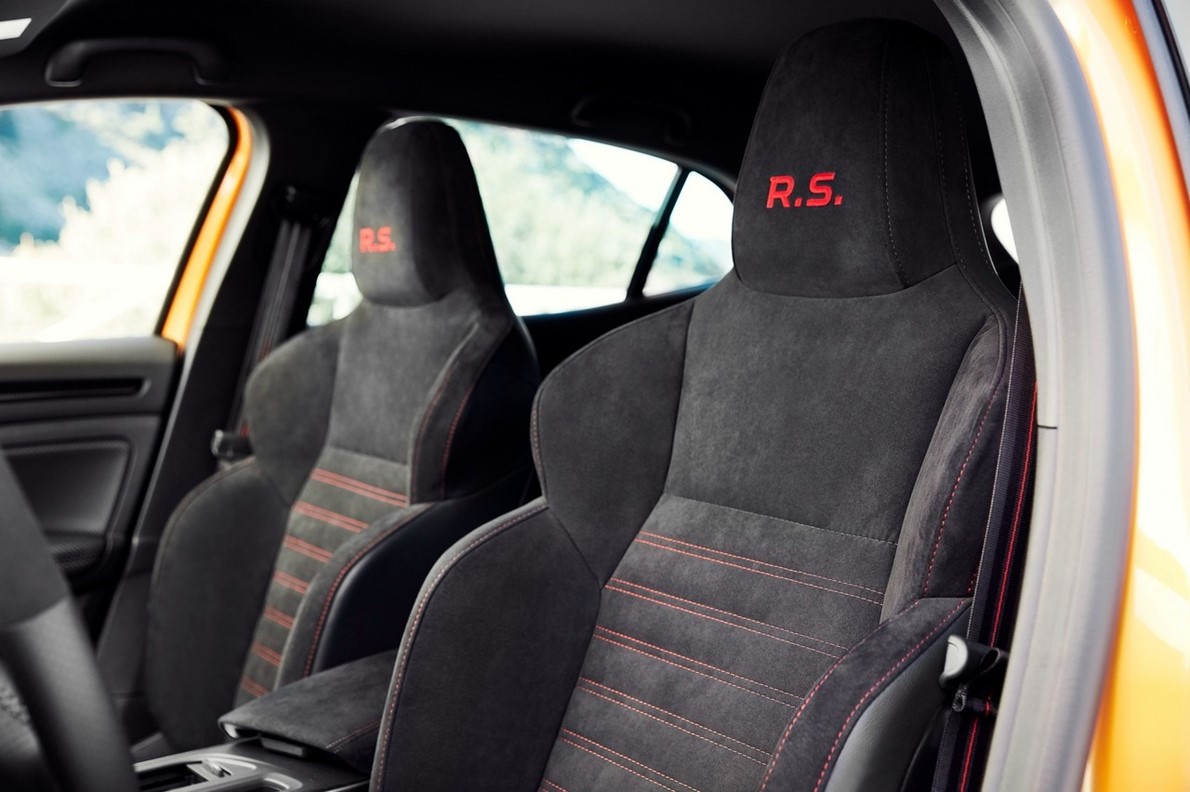
Stable and settled at speed, with plenty of
downforce keeping it planted through fast bends, the Mégane RS drives smoothly
and comfortably, even with low profile 245/35R19 tires. With hydraulic
compression stops inside its dampers acting like secondary internal dampers,
the RS delivers a composed, comfortable, committed and vertically buttoned-down
ride quality. Tires are meanwhile pushed firmly into the ground for improved
traction, road-holding and braking.
The Mégane RS’ 4Control four-wheel-steering system
shortens its wheelbase at lower speeds by turning rear wheels 2.7° opposite to
the front wheels, enhancing agility and maneuverability. At higher speeds, the
rear wheels instead turn 1° in the same direction as the front wheels for
improved lane change stability. Though the vehicle is maneuverable without the
4Control, it provides the RS the agility of an even smaller hot hatch, and a
larger car’s high speed stability.
Skipping down through gears in manual mode before a
series of chicanes, the Mégane RS appeared was at home on the fast and
intricate Autodrome. Performing successive direction changes with ease, it
effortlessly navigated tight cornering lanes. Equally impressive during a
second on-road test drive, the RS was a comfortable and refined long distance
motorway companion. More forgiving than anticipated over imperfections, it was
meanwhile easy to maneuver and park in congested urban conditions.
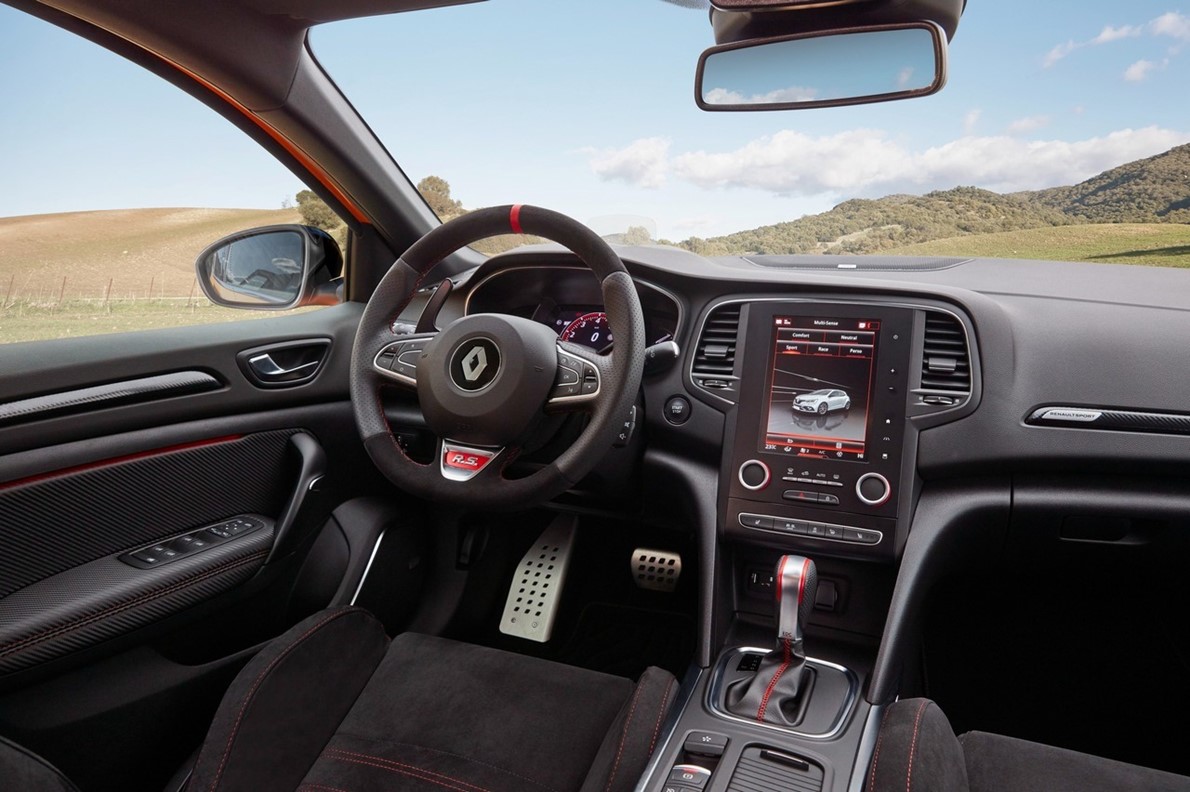
Sportily styled with Alcantara seats, contrasting
stitching, and carbon fiber and aluminium accents, the Mégane RS’ cabin is
comfortable and tasteful, with improved visibility and a supportive driving
position. An infotainment screen telemetry system includes g-force, steering
angle and temperature instrumentation, while driving modes include individually
customizable sound, shift, stability and steering settings. Well-equipped in
road-biased Sport specification, the RS includes cornering direction lights,
rear view camera, blind-spot warning, and parking assistance systems.
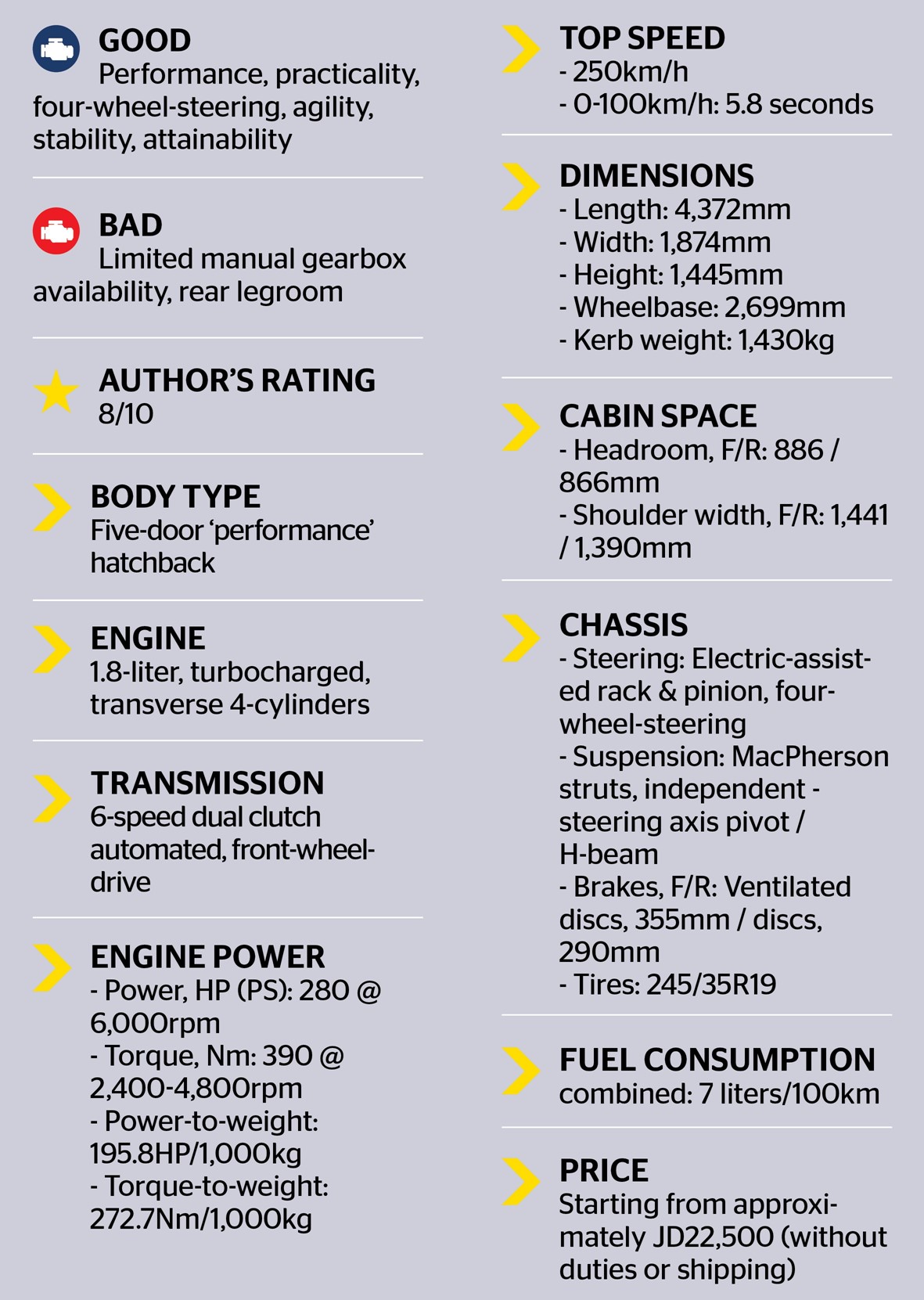 Read more Drive
Jordan News
Read more Drive
Jordan News







